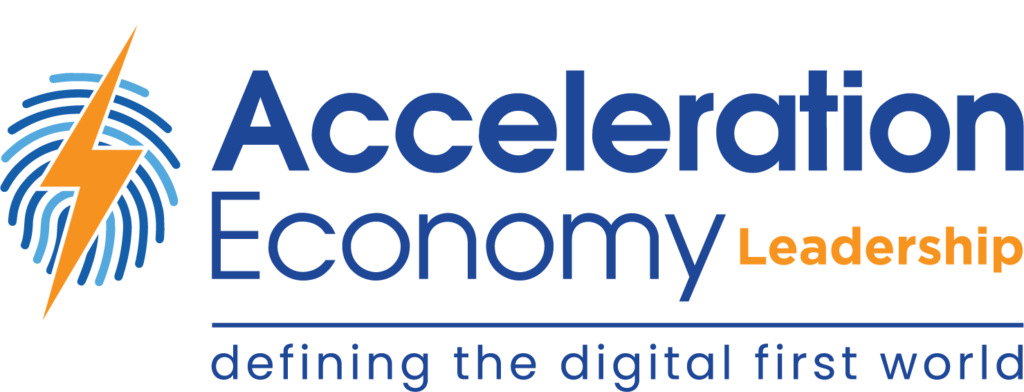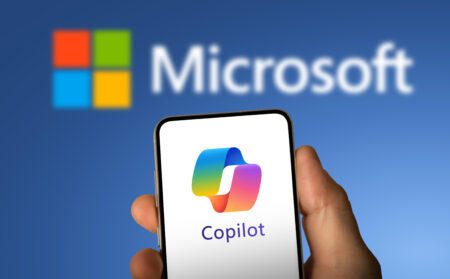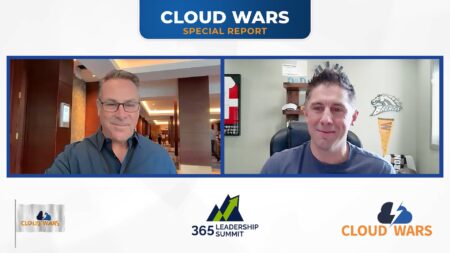In Episode 17 of Acceleration Economy’s Growth Swarm podcast, John Siefert, Bob Evans, Tony Uphoff, and Scott Vaughan continues down the path of analyzing vertical industries and the role that the cloud, AI, and other technologies are playing to accelerate innovative solutions and digital transformation. This week’s episode focuses on the hospitality industry, with an emphasis on increasingly “frictionless” customer experiences.
Highlights
01:09 — John kicks off the discussion by referencing a recent EHL Insights report that looks at the latest innovations, both technological and non-technological, in the hospitality industry, with a look ahead to what’s next. The innovations are divided into three categories: technology innovation, service innovation, and process innovation.
02:11 — On the tech innovation front, the report found that 72 percent of hospitality executives said they implemented a significant portion of their budgets towards technology for both hotels and AirBnB vacation rentals. Innovation was focused on the before, during, and after periods of guest stays.
02:50 — On the service innovation side, the report explored the use of service solutions and service products to create compelling value propositions for guests. John says that a key thing that came out of this segment was a focus on profitability, which the group has talked a lot about in the context of growth.
03:19 — John says the process innovation section focused mostly on the customer, or hotel guest, experience and other front-end processes, as well as how various systems are tied together on the back end.
04:00 — Bob recounts a conversation with the CIO of one of the leading airlines in Asia. The CIO said that the company spent years trying to build up a customer experience that was heavy on human interaction, but that the rise of digital technology and apps on phones led to its best customers not wanting to have any human interaction until they were in their seats on the airplane. The more the airline could get people out of the way, the happier the customers were.
04:51 — Bob discusses frictionless experiences in the hospitality industry. Phones can be used to check in to hotels and as room keys, so guests have no human interaction or transaction until they leave the hotel, and that’s how they like it. Maybe the “real deep love” and personal human interaction aren’t what people want. It’s not that technology is replacing the human experience, but it’s delivering a different experience.
06:20 — John references comments by Workday’s Sharon Schell at the Hospitality Industry Cloud Battleground session during Cloud Wars Expo. Schell said that Workday is looking to simplify the landscape and break down the silos inside the hospitality organizations with which it works. She also mentioned that the hospitality CIO is evolving into much more of a trusted business partner with the CFO and CHRO in terms of enabling massive transformations, accelerating business agility, implementing intelligent automation, and democratizing data to aid in faster and better business decisions.
07:30 — Hospitality “got rocked,” says Scott, over the past three years as the industry ground nearly to a halt, but this slowdown also allowed for a bit of a reset, with a big emphasis on an understandably frictionless experience for guests.
07:55 — Scott touches on silo-busting: If you can think about knocking down the silos internally, then you can actually focus and build the technology, the process, and the experiences externally. Scott says that although this may sound obvious, it often gets overlooked because organizations are so obsessed with surveys and customers.
08:26 — Scott references another takeaway from the Hospitality Industry Cloud Battleground: Namely, bringing data from an AI perspective to better anticipate customer needs so that when you build interactive apps or chat, for example, they can all be driven increasingly by AI. Further, if humans do get involved, it may be at a certain point of the experience, say, “VIP” or something else. The whole personalized convenience experience hasn’t changed in hospitality, but the delivery has.
09:17 — John asks Tony for his thoughts on the frictionless guest experience in the context of hospitality, as well as privacy and security considerations around frictionless customer experiences in general. John references comments made by Oracle VP of Hospitality Product Development David Clifton at Cloud Wars Expo around privacy laws and how all that needs to be taken into consideration when implementing frictionless or automated hospitality environments.
09:56 — Tony reiterates that it’s all about taking the friction out, but that there are still so many laggards in the hospitality industry when it comes to implementing “technology for customer use.” Logging onto WiFi, among other offerings, is still a subpar experience. He recalls Bob’s point about the human touch versus the use of technology regarding travelers and guests, but this mix can also be applied to B2B sales: “When do we introduce ourselves as salespeople?” Tony asks. Regardless of the ideal balance, the hospitality industry must focus on taking the friction out as the north star.
12:08 — Even so, Tony says he would encourage the industry to be even more aggressive and bold and develop customer experiences that go beyond the obvious, such as checking into a room: A hotel chain, like Marriott, for example, could develop a “super app” that could not only be used to check in but also book airline tickets or reserve a VRBO. A hotel chain such as Marriott should be far more aggressive and look at this extraordinary platform it has, which isn’t just a hotel, but rather a unique experience that it can have with customers all over the world. Tony reiterates that “stripping the friction out” remains mission number one, but nevertheless he still wants “to be able to log on to the WiFi seamlessly.”
13:09 — Still, the frictionless experience needs balance. Bob says he was happy to get an email from his airline before an upcoming trip asking him to choose the meal he wanted but found the options to preorder drinks and snacks to be a frictionless step too far.
14:04 — John shares a positive frictionless experience he had during a recent summer trip with his family. The airport restaurant not only offered menus and ordering via QR codes, but also the ability to pay via QR code from a phone, right from the table. That’s convenient enough on its own, but an added discount for paying ahead via QR code offered an even better incentive. Lastly, having options to choose between walking up and getting the food or having a server bring it out delivered “a frictionless experience to actually get exactly what we wanted,” recalls John. Plus, “our food was done faster and it cost less money.”
15:15 — John points out that this great hospitality example doesn’t happen without a technology (and often cloud-based) infrastructure “that is pulling, reacting, acting, and prioritizing me as a customer within the context of that business, as well as a PCI compliant commerce system that enables me to order that food and those sorts of things.” In other words, a frictionless environment only happens when all of these things are inextricably connected.
17:10 – Tony says that hospitality also extends to apartment complexes, where digital and electronic experiences are being designed for tenants before the building is even built. Entire experience teams are developing the customer experience through integrated uses of technology, adding everything from seamless and powerful WiFi to proprietary ride-sharing services and more.
19:12 – John comes back to the three technology innovation sections of the IHT Insights report, concluding that they’re all inextricably connected in today’s world, for both the front end and the back end. To see the entire Hospitality Industry Cloud Battleground, register for your free Cloud Wars Expo On Demand pass here.









